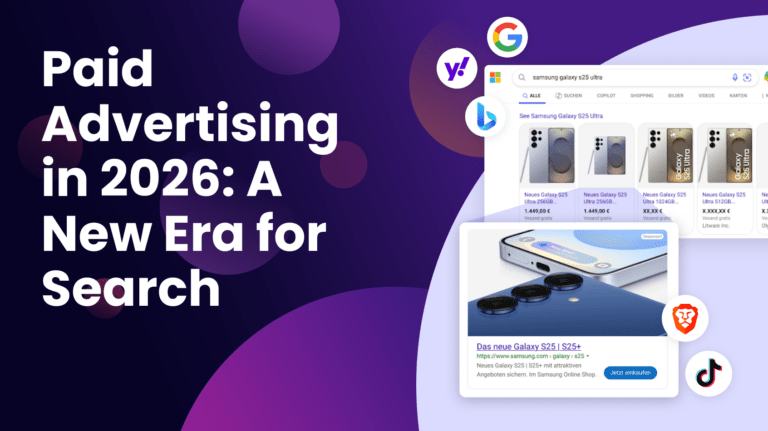Content is essential for building your online presence effectively and drawing your desired traffic to you and not your competitors, but it can’t do it alone. Creating a content strategy will help you plan out your brand’s objectives for the foreseeable future, but unless you consider SEO (search engine optimisation), your plan won’t reach its full potential. So here are some tips for planning SEO-optimised content strategies.
Carry Out an SEO Content Audit
Whilst new content is essential, you should always assess the existing content and see if it could be improved for SEO. Regularly auditing your site is an efficient method for raising your search engine position, as small changes can make a big difference.
Optimising Chosen Keywords
Making sure the right keywords are on each page will help draw your chosen audience to your website. Tools such as SEM rush and Google Keywords are a great help for researching the keywords you need to include and the terms your audience is looking for. This must be checked often to adapt to new trends and ensure your keywords have the highest search volume and the lowest competition.
Content Formatting
Pages without correct formattings, such as H1 and H2 headings, must be optimised for better SEO. Creating content with these formatted headings made of researched keywords will boost your position on search engines as it makes it easier for users to discover your content.
Update Your Content
Information or internal links on your pages may become outdated over time. Reviewing your pages for up-to-date relevance can eliminate broken links, improve readability and ensure that the written content is useful for your readers. This is particularly important for product or service pages where the details must be correct.
So, once you’ve improved your existing content, it is time to plan for the future.

Establish Your Brand’s Voice
Tone of voice is essential when creating new content for your business. Whenever you’re writing something to add to your website, it will be associated not with you personally but with your business.
The tone of voice relates to how your content is presented and will impact the type of customers attracted to your content. For example, a casual tone of voice will be loose, vibrant and full of fun elements to create an entertaining atmosphere and could be used for a hospitality or retail business. Alternatively, a manufacturing company could use a formal tone of voice that is direct, precise and unafraid to use industry jargon.
When building your brand, it is important to establish and maintain a single tone of voice across all your online content so that potential customers see a single, unified voice. This consistency promotes your readers’ confidence and ensures that any new additions fit with the existing content. Consistency is especially important when your presence is spread across multiple platforms such as a website, social media, email marketing and press releases.
Why Create a Tone of Voice?
Brand Identity – A correctly applied tone of voice will quickly create a clear impression of your business’s attitudes, values and capabilities. It is also an excellent tool for separating your brand from your competitors.
Trust Building – The communication between your brand and your customers will go a long way to build that important trust with them, turn them into repeat customers, and inspire positive referrals to their friends. Generally, a friendly but authoritative tone of voice will build a sense of trust that you’re there to help whilst also generating credibility regarding your business’s field of expertise.
Improved Engagement – The right tone of voice will start a personal connection between you and your customers. Combined with fresh, authentic and informative content, this will help create a humanised impression of your brand and encourage increased engagement, particularly through social media.
Increased Conversions – While the previously mentioned benefits are useful, increased conversions are the most subtle but rewarding benefit of a well-crafted tone of voice. Potential customers may be on the fence about whether to choose your company or move on to another, but with a persuasive, confident and knowledgeable tone of voice, you can encourage and guide them to the pages most likely to turn them into paying customers.
The Tone of Voice and SEO
Your tone of voice will indirectly affect your SEO, depending on its consistency. It does this by influencing user behaviours on your website in the manner previously mentioned and in additional ways. For example, a great tone of voice will convince your users to spend more time on your website, share content they find through social media and refer your pages to their friends. By encouraging these user behaviours, your website sends signals to search engines that your pages are beneficial to users.

Planning Future Content
With your web presence optimised, now it’s time to think about the content you need to keep adding to your website. Planning future content for SEO should resemble these steps:
Identify Your Target Keywords – Use keyword research tools to identify the keywords and phrases your target audience is searching for. Look for keywords that have high search volume, low competition, and are relevant to your business or industry.
Analyse Your Competitors – Look at your competitor’s ranking for the target keywords and compare them with your choices. Identify the topics and types of content performing well, and consider creating similar content to improve your search engine rankings.
Plan Content Types – Plan a variety of content formats, such as blog posts, videos, infographics, and how-to guides. Different types of content can appeal to different audiences and can help to increase engagement and shareability.
Create a Content Calendar – Plan and organise your content creation so you’re regularly adding. This will help you to stay consistent with your content creation and ensure that you are covering a variety of topics and also prepared for planned seasonal events.
Hopefully, these tips will help you develop your own content strategy that aligns with your SEO requirements. Individually, content and SEO can improve your web presence, but together, will provide surprising benefits for your online brand. Contact us to find out the best ways to develop content with SEO in mind.




